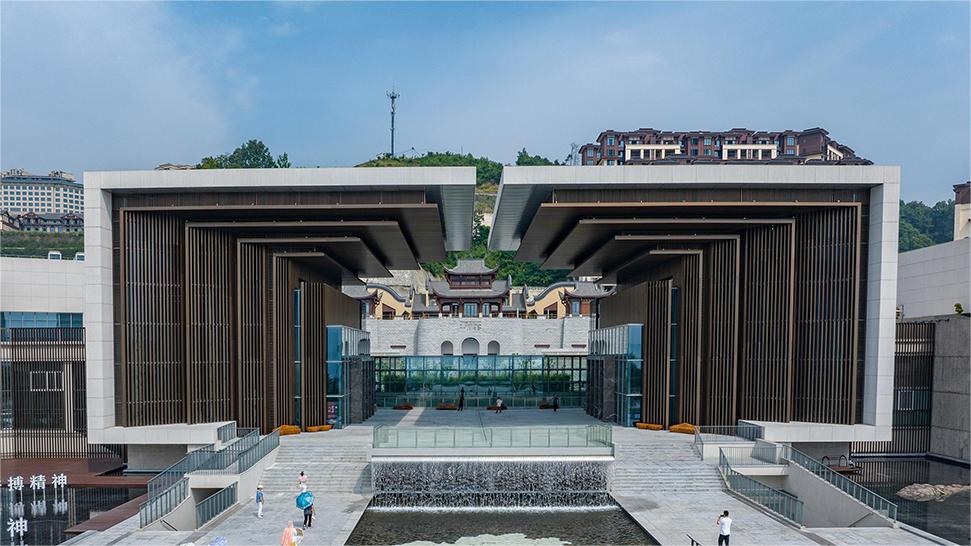Discovering Xinjiang: A revelation of culture and beauty

Photo shows the scenery of the Baisha Mountain and Baisha Lake scenic area in Akto county, northwest China's Xinjiang Uygur Autonomous Region. (People's Daily Online/Li Xinyang)
Before embarking on my journey to northwest China’s Xinjiang Uygur Autonomous Region, I had a vague idea of what to expect. I had heard about its sprawling landscapes and rich cultural heritage. I imagined a place steeped in tradition, with bustling markets and historic museums. What I found, however, was not only a confirmation of these expectations but also a series of delightful contradictions that painted a far more complex and enchanting picture of Xinjiang.
As I discovered, Xinjiang is a region of diversity, not just in its culture but also in its geography. The vast expanses that I had envisioned were punctuated by bustling cities like Urumqi, where modernity and tradition fuse seamlessly. The city streets are lined with state-of-the-art buildings shadowed by the imposing silhouette of the Tianshan Mountains — a daily reminder of nature's omnipresence.
The cultural vibrancy of Xinjiang is palpable not just in its historical sites but in the everyday interactions with its people. The warm hospitality of the Uygur communities, the melodious calls from the minarets, and the colorful markets selling everything from spices to silk all contribute to a rich sensory experience that transcended my preconceived notions. The harmonious blend of ethnic groups, preserving their unique traditions while coexisting with modernity, was particularly striking.
In essence, Xinjiang is a land of contrasts and confluences. Where I expected to find only echoes of the past, I also found the pulsating rhythms of a dynamic present. This juxtaposition of ancient and modern, of nature and urbanity, is what truly defines Xinjiang. It is a region that met and exceeded my expectations, inviting me to look beyond the surface and appreciate the profound depth of its cultural landscape.
During a serendipitous encounter in Urumqi, I met two Uygur high school students in their first year. In our conversation, I asked them, "Hello, what is your name? Have you eaten yet? Are you happy?" Then, I asked them to teach me how to express these everyday phrases in Uygur. This simple yet profound exchange introduced me to the Uygur language and significantly closed the distance between me and these young individuals.
They enthusiastically introduced me to the basics of the Uygur language, and each time I pronounced the words correctly, they responded with encouraging smiles. This interaction was a unique cultural experience that underscored the powerful role of language in connecting people from different cultural backgrounds. Through this simple dialogue, I learned not just a few phrases in Uygur, but more importantly, I experienced the openness and friendliness of Xinjiang's younger generation.
As our conversation deepened, I learned that despite their young age and ongoing high school education, they were full of hope and dreams for the future. They shared details about their academic lives and aspirations; one student dreams of becoming a doctor, while the other hopes to travel abroad and see the world. These discussions not only deepened my understanding of their personal lives but also gave me a more vivid appreciation of Xinjiang's young people's cultural diversity and positive attitudes.
Through my interactions with these high school students, I deeply understood the importance of cross-cultural communication. This experience showed me that despite our different cultures and backgrounds, friendship and understanding can easily transcend these boundaries, linking us through our common humanity and shared thirst for knowledge.
This exchange was a valuable learning and growth experience, enhancing my language skills and teaching me how to practice and experience genuine cultural integration in everyday life.
I plan to revisit Xinjiang and highly recommend it to my family, relatives, and friends. I want to share my beautiful experiences in Xinjiang, so others can also appreciate its unique culture and natural beauty. Xinjiang is not just a travel destination; it is a place that touches the heart and lets people discover and experience beauty.
By recommending it to friends and family, I hope to let more people know and experience the beauty of Xinjiang. It is a place worth visiting repeatedly, where each visit uncovers new stories and cultural experiences. Every trip here is a rejuvenation of the soul, leaving lasting impressions.
The author is an international student at the Beijing Foreign Studies University.
Photos
Related Stories
- China's Altay sees booming tourism
- Scenery of Lujiaowan scenic area in Xinjiang
- Xinjiang sees tourism boom during Dragon Boat Festival
- 7-day event featuring hiking and camping launched in Baicheng, China's Xinjiang
- "Forced labor" lies bring "forced unemployment" in Xinjiang
- Xinjiang sees sports venues boom, adding 30,000 in 5 years
Copyright © 2024 People's Daily Online. All Rights Reserved.









